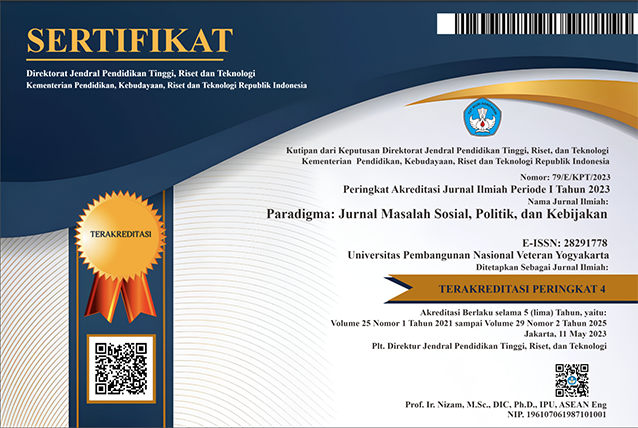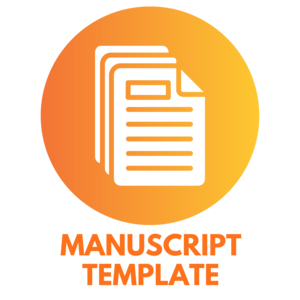Analisis Efektivitas Iklan Berdasarkan Konsep AIDCA (Studi pada Iklan SMS Produk Telkomsel)
DOI:
https://doi.org/10.31315/paradigma.v21i1.2761Keywords:
Efektivitas, Iklan SMS, AIDCA, CRI.Abstract
Penelitian ini dilakukan untuk mengetahui efektivitas iklan produk Telkomsel melalui media Short Message service (SMS) pada mahasiswa Administrasi Bisnis Universitas Pembangunan Nasional “Veteran” Yogyakarta angkatan 2013-2014. Iklan produk Telkomsel memiliki tujuan yaitu mempengaruhi konsumen untuk menggunakan Produk Telkomsel yang diiklankan melalui SMS. Penelitian menggunakan tipe deskriptif. Populasi dalam penelitian ini adalah mahasiswa Administrasi Bisnis UPN “Veteran” Yogyakarta yang menggunakan provider Telkomsel. Ukuran sampel pada penelitian ini 62 responden berdasarkan rumus Slovin. Penelitian menggunakan nonprobability sampling dengan metode penarikan sampel yang digunakan adalah sampling aksidental. Teknik analisis menggunakan konsep Attention, Interest, Desire, Conviction dan Action (AIDCA) dan melalui tiga tahap analisis yaitu tabulasi sederhana, skor rata-rata, dan Customer Response Index (CRI). Hasil penelitian dengan tabulasi sederhana dan skor rata-rata untuk dan perhitungan CRI untuk variabel AIDCA yaitu “Tidak Efektif” menunjukan bahwa iklan Telkomsel tidak berhasil membuat konsumen menggunakan produk yang diiklankan melalui SMS dengan hasil action 43% dan not action 57%.Downloads
How to Cite
Issue
Section
License
The manuscript submitted to Paradigma: Jurnal Masalah Sosial, Politik, dan Kebijakan journals are released under the license of Creative Commons Attribution-Non Commercial- ShareAlike (CC BY SA) if and when the article is accepted for publication.
We declare that:
- This paper has not been published in the same form elsewhere.
- It will not be submitted anywhere else for publication prior to acceptance/rejection by this Journal.
- A copyright permission is obtained for materials published elsewhere and which require this permission for reproduction.
Retained Rights/Terms and Conditions
Authors retain all proprietary rights to the published works, such as (but not limited to) the following rights:
- Copyright and other proprietary rights relating to the article, such as patent rights,
- The right to use the substance of the article in own future works, including lectures and books,
- The right to reproduce the article for own purposes,
- The right to self-archive the article
The right to enter into separate, additional contractual arrangements for the non-exclusive distribution of the article's published version (e.g., post it to an institutional repository or publish it in a book), with an acknowledgment of its initial publication in this journal Paradigma: Jurnal Masalah Sosial, Politik, dan Kebijakan



